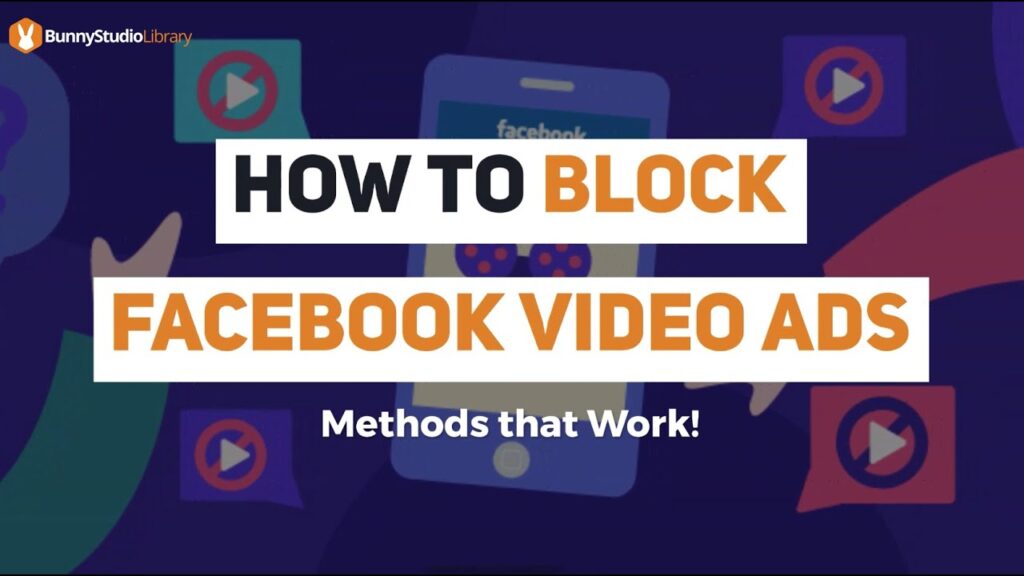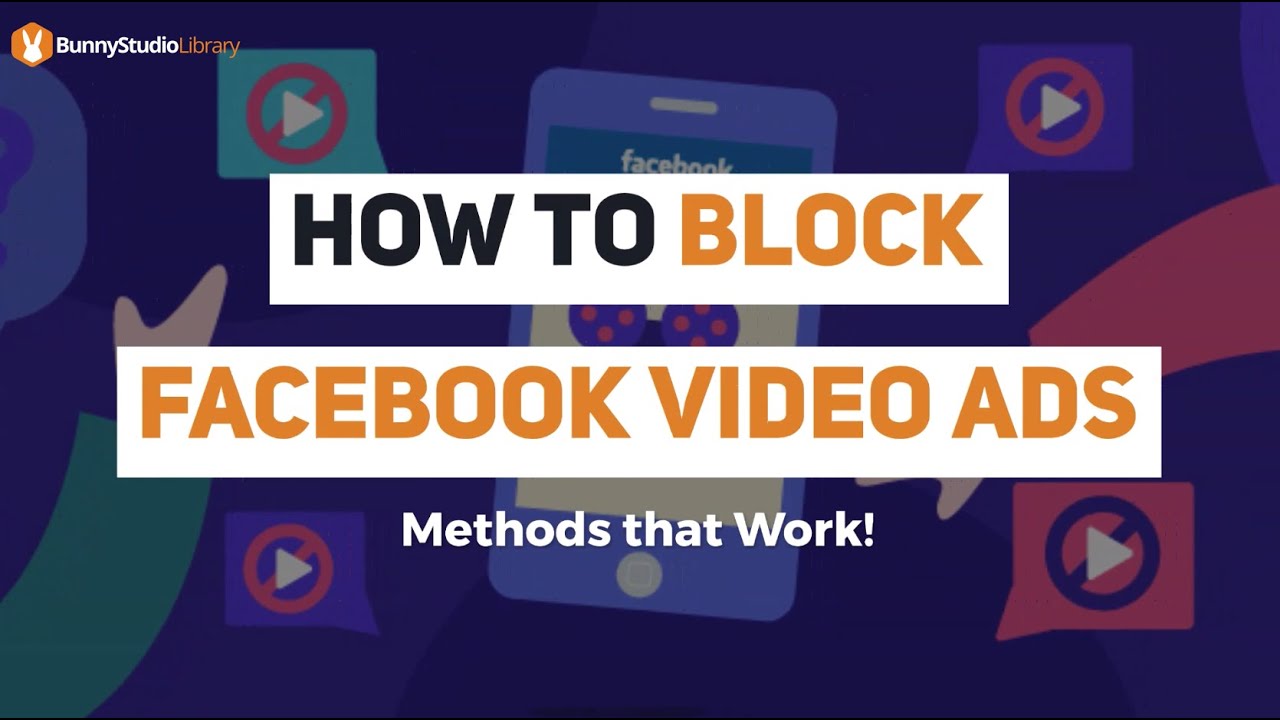
Facebook Ads Blocker: Navigating the Digital Noise and Protecting Your Privacy
In today’s digital age, online advertising has become ubiquitous. While advertising is a vital component of the internet ecosystem, funding free content and services, the sheer volume and intrusiveness of ads can be overwhelming for users. Facebook, with its massive user base, is a prime platform for advertisers. Consequently, users often encounter a barrage of ads while browsing the social network. This has led to the rise of Facebook ads blocker tools, designed to mitigate the disruptive nature of online advertising and protect user privacy. This article delves into the world of Facebook ads blocker, exploring their functionality, benefits, limitations, and ethical considerations.
The Proliferation of Facebook Ads
Facebook’s advertising model is highly sophisticated. The platform leverages user data to deliver targeted ads, increasing the likelihood of engagement and conversion. While this benefits advertisers, it can also lead to a personalized advertising experience that feels intrusive to some users. The constant stream of ads, often tailored to individual interests and browsing history, can be distracting and even anxiety-inducing. Furthermore, the prevalence of fake or misleading ads on Facebook has raised concerns about consumer protection and the spread of misinformation.
What is a Facebook Ads Blocker?
A Facebook ads blocker is a software application or browser extension designed to prevent advertisements from appearing on the Facebook website or mobile app. These tools work by identifying and blocking the code that loads ads, effectively removing them from the user’s view. The effectiveness of a Facebook ads blocker depends on its sophistication and ability to adapt to Facebook’s evolving advertising strategies. Some blockers focus on removing specific types of ads, while others offer a more comprehensive approach, blocking all forms of advertising content.
How Facebook Ads Blockers Work
Facebook ads blockers employ various techniques to achieve their objective. Some common methods include:
- Filter Lists: These blockers use pre-defined lists of known ad servers and domains. When a user visits a webpage, the blocker checks the resources being loaded against these lists. If a match is found, the resource is blocked.
- Element Hiding: This method involves identifying and hiding ad elements on a webpage. The blocker uses CSS rules or JavaScript code to hide the ad containers, making them invisible to the user.
- Script Blocking: Ads often rely on JavaScript code to track user behavior and deliver targeted advertising. Script blockers prevent these scripts from running, effectively disabling the ad tracking and delivery mechanisms.
- AI-Powered Blocking: More advanced Facebook ads blockers utilize artificial intelligence and machine learning to identify and block ads based on their content and behavior. These blockers can adapt to new advertising formats and techniques, providing a more robust and reliable solution.
Benefits of Using a Facebook Ads Blocker
The primary benefit of using a Facebook ads blocker is a cleaner and less intrusive browsing experience. By eliminating ads, users can focus on the content they are interested in without distractions. Other benefits include:
- Improved Page Load Times: Ads can significantly slow down page load times, especially on mobile devices. By blocking ads, users can experience faster browsing speeds.
- Reduced Data Usage: Ads consume bandwidth, especially video ads. Blocking ads can help reduce data usage, which is particularly beneficial for users with limited data plans.
- Enhanced Privacy: Many ads track user behavior to deliver targeted advertising. By blocking ads, users can limit the amount of personal data collected and shared by advertisers.
- Security Enhancement: Malicious ads, known as malvertising, can spread malware and compromise user security. Blocking ads can reduce the risk of exposure to malvertising.
- Reduced Distraction: The constant stream of ads can be distracting and disruptive. Blocking ads can help users focus on the content they are interested in.
Popular Facebook Ads Blockers
Several Facebook ads blockers are available, each with its own features and capabilities. Some popular options include:
- AdBlock: A widely used browser extension that blocks ads on Facebook and other websites.
- Adblock Plus: Another popular ad blocker with similar functionality to AdBlock.
- uBlock Origin: A lightweight and efficient ad blocker that uses minimal resources.
- Privacy Badger: A browser extension that automatically learns to block trackers and intrusive ads.
- Ghostery: A privacy-focused browser extension that blocks trackers, ads, and other unwanted elements.
Limitations of Facebook Ads Blockers
While Facebook ads blockers can be effective at removing ads, they are not foolproof. Facebook is constantly evolving its advertising strategies, and ad blockers must adapt to keep up. Some limitations include:
- Ad Blocker Detection: Facebook may detect the use of ad blockers and attempt to circumvent them.
- Native Ads: Some ads are integrated into the content stream, making them difficult to distinguish from organic posts. These native ads may not be blocked by all ad blockers.
- Sponsored Posts: Similar to native ads, sponsored posts can be difficult to block.
- Potential for False Positives: Ad blockers may sometimes block legitimate content, resulting in a broken or incomplete webpage.
- Impact on Website Revenue: Blocking ads can reduce revenue for websites that rely on advertising to fund their operations.
Ethical Considerations
The use of Facebook ads blockers raises ethical considerations. While users have the right to control their online experience, blocking ads can negatively impact the revenue of websites and content creators. Many websites rely on advertising to provide free content and services. By blocking ads, users are essentially consuming content without contributing to its funding. This can lead to a decline in the quality and availability of free online resources.
Some users choose to whitelist certain websites, allowing ads to be displayed on those sites. This allows them to support the content creators they appreciate while still blocking ads on other websites. [See also: The Future of Online Advertising] Another approach is to subscribe to premium services that offer ad-free content. This provides a direct way to support content creators while enjoying an ad-free experience.
Facebook’s Response to Ad Blockers
Facebook has taken various steps to counter the use of Facebook ads blockers. These include:
- Circumventing Ad Blockers: Facebook has implemented techniques to detect and circumvent ad blockers, ensuring that ads are displayed to users even if they have an ad blocker installed.
- Promoting Native Advertising: Facebook has increased its reliance on native advertising, which is more difficult to block than traditional banner ads.
- Improving Ad Relevance: Facebook aims to improve the relevance of its ads, making them less intrusive and more engaging for users.
Facebook argues that advertising is essential to funding its operations and providing free services to users. The company believes that relevant and engaging ads can enhance the user experience, rather than detract from it. [See also: Understanding Facebook’s Advertising Algorithms] However, many users remain skeptical of Facebook’s advertising practices and continue to use Facebook ads blockers to protect their privacy and control their online experience.
Alternatives to Facebook Ads Blockers
For users who are concerned about the ethical implications of blocking ads, several alternatives are available:
- Using a VPN: A Virtual Private Network (VPN) can encrypt your internet traffic and mask your IP address, making it more difficult for advertisers to track your online activity.
- Adjusting Privacy Settings: Facebook allows users to adjust their privacy settings to limit the amount of data collected and shared by advertisers.
- Using a Privacy-Focused Browser: Several browsers, such as Brave and Firefox Focus, are designed with privacy in mind. These browsers include built-in ad blockers and tracking protection features.
- Supporting Content Creators Directly: Instead of relying on advertising, many content creators offer subscription services or accept donations from their fans. This provides a direct way to support the content you enjoy.
The Future of Facebook Ads Blockers
The battle between Facebook ads blockers and Facebook is likely to continue. As Facebook develops new advertising techniques, ad blockers will need to adapt to keep up. The future of ad blocking may involve more sophisticated AI-powered solutions that can identify and block ads based on their content and behavior. [See also: The Evolution of Online Privacy] Furthermore, the growing awareness of online privacy and data security may lead to increased demand for ad blocking tools.
Ultimately, the decision to use a Facebook ads blocker is a personal one. Users must weigh the benefits of a cleaner and less intrusive browsing experience against the ethical considerations of blocking ads and the potential impact on website revenue. By understanding the functionality, limitations, and ethical implications of Facebook ads blocker, users can make informed decisions about their online experience.
In conclusion, Facebook ads blocker serve as a tool for users to regain control over their browsing experience on the platform. While offering advantages such as improved speed, reduced data usage, and enhanced privacy, their use also raises ethical questions about supporting content creators and the sustainability of the free internet. As technology evolves, so too will the methods employed by both advertisers and ad blockers, making it crucial for users to stay informed and adaptable in navigating the digital landscape.

